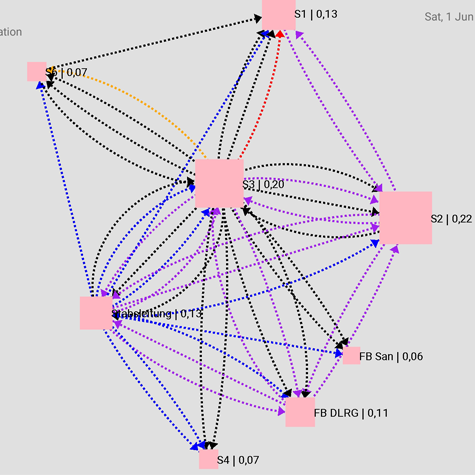

The Research Training Group (RTG) analyzes critical infrastructures in cities—the networked systems that supply urban conglomerations with energy, water, communication facilities, and transportation services, and which treat and dispose of waste- and storm water. Those infrastructures have become the backbone of modern cities, and their failure can trigger dramatic crises. In recent years, the growing vulnerability that seems to accompany the increased dependency on infrastructural networks has been a controversial topic. That controversy is due not only to multiple external threats such as natural disasters, terrorist and cyber-attacks, but also to the growing complexity and increasing interdependencies of infrastructure systems.
The basic assumption of the RTG is that critical infrastructures are highly context-dependent both in temporal and spatial terms, and that they also manifest multiple spatial and temporal relations. The group’s aim is to understand and to explain these complex systems in their spatiality and temporality, and to explore urban practices of planning, of preventing interruptions and of preparing for them.


At the Institute of Numerical Methods and Informatics in Civil Engineering the focus is research on digital methods for modeling, simulation, and analysis of critical infrastructures for interdisciplinary engineering safety services in the urban context. A particular focus is on the digital building modeling with BIM (Building Information Modeling), Sensor Technology, Virtual and Augmented Reality as well as Serious Gaming. Special consideration relies on the question of how prevention of and preparedness for urban infrastructure failures can be organized and which spatial and temporal aspects play a role in the protection of critical infrastructures.
In the RTG, Ph.D candidates work together and under the guidance of professors and associate researchers on their individual promotions, which are all joined together by the overarching theme of the group and similar approaches. A special feature of the RTG is close cooperation and relationships with practice partners and collaboration with four prestigious research institutes in other European countries.













